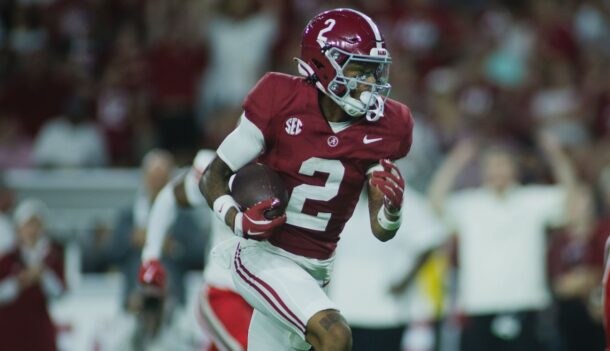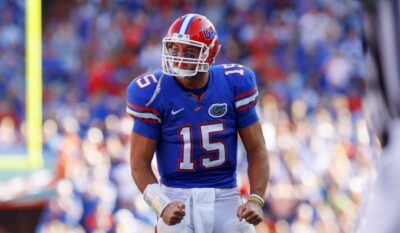Even President Barack Obama believes the mega-millions now generated by college athletics have rendered old rules antiquated.
As the debate about compensation for college student-athletes plays out in the public as well as the legal system — proceedings in the Ed O’Bannon vs. NCAA case continued last week in San Francisco’s U.S. 9th Circuit Court of Appeal — Obama decided to voice his own opinion.
The president of the United States feels both sides have merit, to an extent.
“The students need to be taken better care of because they are generating a lot of revenue here,” Obama said, according to the Huffington Post. “An immediate step that the NCAA could take — that some conferences have already taken — is if you offer a scholarship to a kid coming into school, that scholarship sticks, no matter what.”
There Obama is referencing reforms that guarantee the full cost of athletic scholarships, passed by the power conferences. Full cost of attendance — what it means for student-athlete scholarships and how much it covers — is another issue getting heavy discussion, and also is part of the legal case.
Obama also called for universities to stop dodging medical liability when student-athletes are injured playing a sport under scholarship.
“It doesn’t matter whether they get cut, it doesn’t matter whether they get hurt,” Obama said. “You are now entering into a bargain and responsible for them.”
The president also encouraged universities to recognize that most student-athletes will not play in professional leagues, even some college stars, and that by citing deferred compensation — these guys will make their money in the NFL — colleges are robbing some revenue generators of economic opportunity.
Rules meant to protect amateurism can be draconian. Everyone outside the walls of a certain building in Indianapolis adorned with a four-letter logo agrees with that. Even the president.
“What does frustrate me is where I see coaches getting paid millions of dollars, athletic directors getting paid millions of dollars, the NCAA making huge amounts of money, and then some kid gets a tattoo or gets a free use of a car and suddenly they’re banished,” Obama said. “That’s not fair.”
The more controversial topic of discussion is whether college athletes should draw some type of salary or revenue share in the form of deferred cash, placed in a trust until the completion of their college careers.
The biggest sticking points, even among progressives on the issue, are the logistics. Is there any way to measure the amount of money generated by the athletes vs. the school branding on their jerseys? And how could pay for play get implemented without opening up the entire system to free-flowing corruption and economic bidding, even more than it is now?
Obama also avoided saying that college athletes should have the right to form a union, something that Northwestern football players forced into the discussion in 2014. Obama’s appointees to the National Labor Relations Board are considering what that would mean and whether it should be allowed.
“In terms of compensation, I think the challenge would just then start being, do we really want to just create a situation where there are bidding wars?” Obama asked. “How much does a Anthony Davis get paid as opposed to somebody else? And that I do think would ruin the sense of college sports.”
These are all very complex issues. But all parties involved are going to need to work together to determine the best solutions.
Obama’s opinions come off as practical. What makes sense? But he doesn’t have a vested interest in the same way as the NCAA, student-athletes and universities. Is it possible, with legal action long since broached, for the parties to willingly make concessions and cooperate?
One thing seems certain: The market cap of college athletics isn’t going to wither away any time soon. Figuring out fair ways to divide the money is only going to get more complex and important.
An itinerant journalist, Christopher has moved between states 11 times in seven years. Formally an injury-prone Division I 800-meter specialist, he now wanders the Rockies in search of high peaks.







